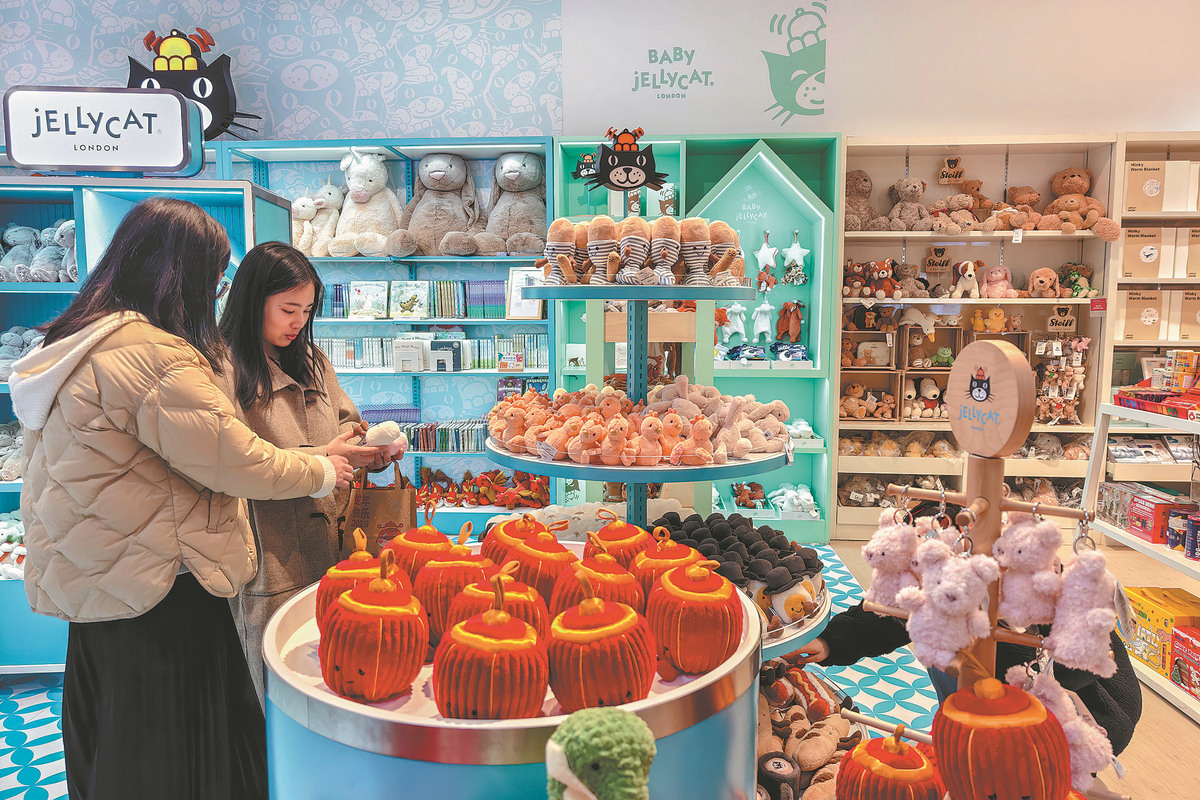Plush toy appeal intensifies among youth
Many consumers embracing these soft and cuddly products as lifestyle companions, often taking them along to class, meals, work, and while traveling


A normal-sized plush toy retails for around 50 yuan ($6.9) on average in China. However, a 31-centimeter version plush toy from London-based toymaker Jellycat is priced at 399 yuan or more, and flies off the shelves the moment it becomes available.
These soft and cuddly toys have managed to transcend the traditional toy market, appealing to the emotional and psychological needs of young adults who are increasingly seeking comfort, companionship and a sense of self-expression through their purchases, analysts said.
Jellycat's products are defined by two key characteristics: instantly recognizable features like button eyes, tiny feet and endearing smiles, as well as whimsical, anthropomorphic designs that bring the plush toys to life.
Its social media accounts have a unique way of addressing their plush toys, referring to them as "furry friends" and "retired employees "when products are discontinued. The brand regularly shares the "daily lives" of their characters, even running "employee of the month "contests.
By cultivating an immersive brand world, the company has managed to forge strong emotional bonds with its consumers, who believe that their Jellycat friends possess genuine personalities and souls, said Zhu Keli, founding director of the China Institute of New Economy.
For Weng Huayu, a sophomore student at Beijing Language and Culture University, the connection to her Jellycat plush orange she bought in 2023 goes far beyond a simple purchase. Weng, who goes by the online nickname "Big Orange", felt an instant kinship with the toy.
"I felt like there was a special bond between us," Weng said. "I started bringing it to class with me, and now I take it everywhere. I've really grown to love it."
In Weng's eyes, her Jellycat plush orange has a warm, easygoing personality. "It's a bit naughty as well — it often runs away when I try to take photos of it. It loves to play hide-and-seek and will hide in real orange piles. It also enjoys traveling, and we've been to many places together."
During her travels, Weng always makes sure to take plenty of photos of the plush toy with the scenic backdrops and posts those in her WeChat moments.
On social media platform Xiaohongshu — also known as RedNote — users like Weng who treat Jellycat plush toys as children are far from uncommon. Many consumers have embraced Jellycat products as lifestyle companions, taking them along to class, meals, work and while traveling.
Some have even gone so far as to create dedicated social media accounts for their Jellycat plush toys, chronicling the "daily lives" of these furry companions.
Zhu said that Jellycat's ability to imbue its products with distinct personalities and backstories has been instrumental in fostering these deep, almost anthropomorphic bonds between consumers and the plush toys.
"By creating a sense of individuality and lifelike features around their products, Jellycat has enabled consumers to see these plush toys as more than just inanimate objects, but also as friends, companions, and even extensions of their own identity," Zhu added.


















